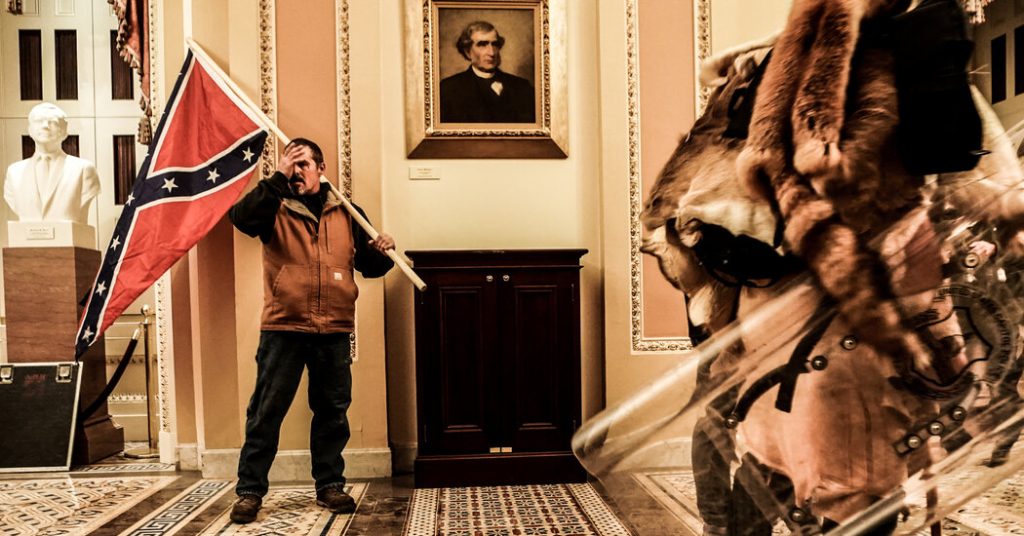The Supreme Court is currently considering the soundness of an obstruction law that has been widely used against those involved in the Jan. 6 attack on the Capitol. This decision is already impacting some of the rioters, with a small group of individuals who were convicted under the law being released or slated for release, despite the fact that the case is not expected to be decided for several months. Federal judges in Washington have granted release to about 10 defendants who were serving prison sentences due to the obstruction law, allowing them to wait at home as the court determines the legitimacy of their imprisonment.
Matthew Bledsoe, the owner of a moving company from Tennessee, is among those who have already been released. He climbed a wall outside the Capitol and paraded through the building with a Trump flag, eventually planting it in the arm of a statue of President Gerald R. Ford. Others, such as Kevin Seefried from Delaware and Alexander Sheppard from Ohio, are also set to be released. These individuals face charges under the obstruction statute, which may be reinstated depending on how the Supreme Court rules. The charge has been used against more than 350 rioters involved in the Capitol attack, including prominent figures like Jacob Chansley and members of extremist groups like Proud Boys and the Oath Keepers.
The potential implications of a ruling on the obstruction law have caused concern among legal experts, who fear it could have a significant impact on the Justice Department’s efforts to hold the rioters accountable for their actions on Jan. 6. However, adjustments have been made by judges and prosecutors working on Capitol riot cases in anticipation of the Supreme Court’s decision. Currently, no defendants are facing only the obstruction charge, with all rioters indicted on this count also being charged with other crimes. As a result, even if the obstruction law is removed as a tool for prosecuting Jan. 6 cases, none of the cases would disappear entirely.
If the Supreme Court rules that the obstruction count does not apply to the Capitol attack, the primary effect would be on the sentences faced by the defendants. The obstruction law carries a maximum penalty of 20 years in prison, although few rioters have received such a lengthy sentence. Judges have indicated that they may increase sentences stemming from other charges if the obstruction count is deemed irrelevant. For example, Judge Royce C. Lamberth denied early release to an Iowa man named Leo Kelly, who was sentenced to 30 months in prison on obstruction charges and six other misdemeanors. Judge Lamberth stated that he could increase the defendant’s total time in prison by imposing consecutive terms on the misdemeanor charges if the Supreme Court rules against sentencing for obstruction.
The Supreme Court’s review of the obstruction statute known as 18 U.S.C. 1512 has raised potential complications in Capitol riot cases, particularly for those who have been charged under this law. While the court has not yet made a decision, the impact of a ruling could affect the sentences faced by the rioters involved in the Jan. 6 attack. Despite concerns about the potential consequences of narrowing the scope of the obstruction law, adjustments have been made to cases in anticipation of the Supreme Court’s ruling. The release of some defendants who were imprisoned under the law has already occurred, with judges determining that they can await the court’s decision from home.


